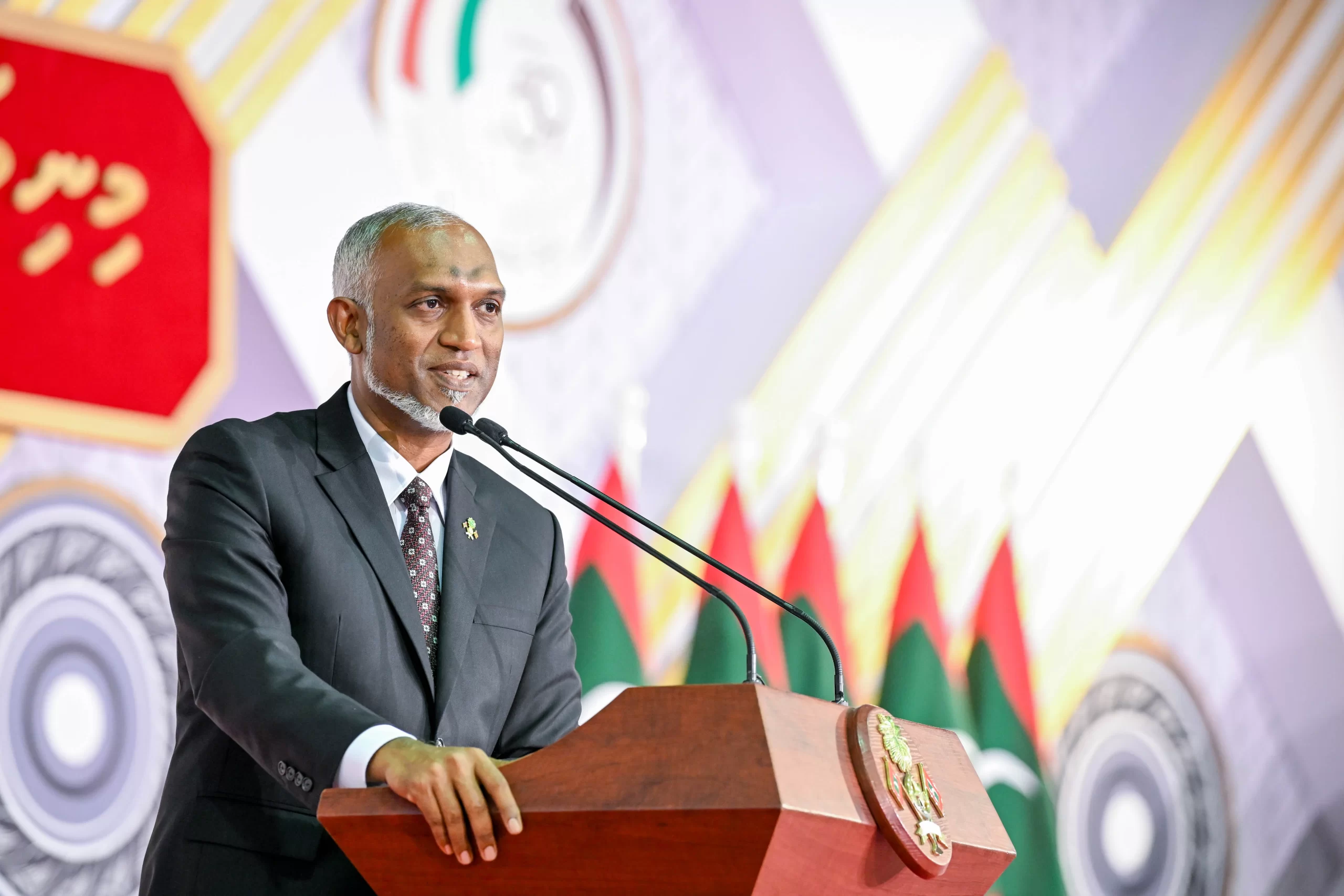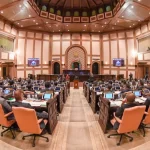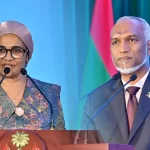Male’, Maldives — In a notable shift from its usual stance, China has agreed to roll over loans taken by the Maldives for various development projects, underscoring the close relationship between the two nations under President Mohamed Muizzu’s administration. This announcement came during a ceremony marking the 59th Independence Day, where President Muizzu lauded the assistance provided by the Chinese government.
Speaking at the ceremony, President Muizzu revealed that the Chinese government had granted approval for a five-year rollover of loans from China’s Export-Import Bank. This is a significant step, showcasing the robust relations our administration enjoys with China, he stated. The rollover means that the Maldives will not need to make payments on the principal or interest of these loans for the next five years.
This move marks a departure from China’s typical approach to other countries. Despite numerous requests from various nations, Beijing has often been reluctant to grant similar concessions. The Maldives’ success in securing this agreement highlights the strengthened diplomatic and economic ties between the two countries.
President Muizzu also mentioned ongoing efforts to secure a currency swap agreement with China, alongside India, to alleviate the USD shortage affecting the Maldivian economy. Such a swap agreement would provide much-needed financial flexibility and support economic stability.
The Maldives’ ongoing negotiations with China not only underscore the close bilateral relations but also set a potential precedent for other nations seeking financial reprieve from Chinese loans. If the Maldives successfully secures this extremely favorable loan rollover, a concession rarely granted by Beijing to other countries, it could serve as a blueprint for similar negotiations elsewhere.
As President Muizzu’s administration navigates these complex financial waters, the outcome of these talks with China will be a crucial element in shaping the Maldives’ economic strategy.
Additionally, President Muizzu announced that China will support the Maldives with soft loans for the construction of a housing project on RasMale’, a shallow lagoon where reclamation began after he assumed office. The president stated that 30,000 housing units will be built with these Chinese soft loans. This means that, besides rolling over the existing principals and interests, there will be more funds allocated for new development projects. Furthermore, President Muizzu mentioned that discussions about constructing two bridges in the Greater Male’ area have taken place with China during recent ministerial visits to Beijing.
Since the launch of China’s Belt and Road Initiative (BRI) in 2013, Beijing has extended loans to 165 low and middle income countries. Recent reports indicate that around 80% of these loans are now held by countries experiencing financial distress, prompting negotiations for loan restructuring. The Maldives is among these nations, seeking more favorable terms to manage its debt.
Other countries negotiating with China include Sri Lanka, Pakistan, and Zambia, all of which have faced significant financial challenges.
According to a report by AidData, a research institute at Virginia’s College of William and Mary, China is owed over a trillion dollars through its BRI projects, making it the world’s largest creditor. Many of these loans have reached their principal repayment period, adding pressure on debtor nations.
China’s extensive infrastructure projects in these countries, totaling more than USD 80 billion in aid and credit, compared to around USD 60 billion from the United States, as reported by AidData.
Despite criticism of China’s lending practices, recipient countries have often defended the benefits received, while some have renegotiated deals to address concerns over opaque pricing and high costs.
Many countries have faced criticism over corruption related to these mega projects, raising concerns about transparency and accountability in the use of funds and lending.
The Maldives’ approach and negotiations with China will be closely watched as a potential model for other nations in similar financial predicaments.
Malaysia and Myanmar, for example, have successfully renegotiated project costs with China, reflecting a growing trend among BRI participants to seek more favorable terms.












